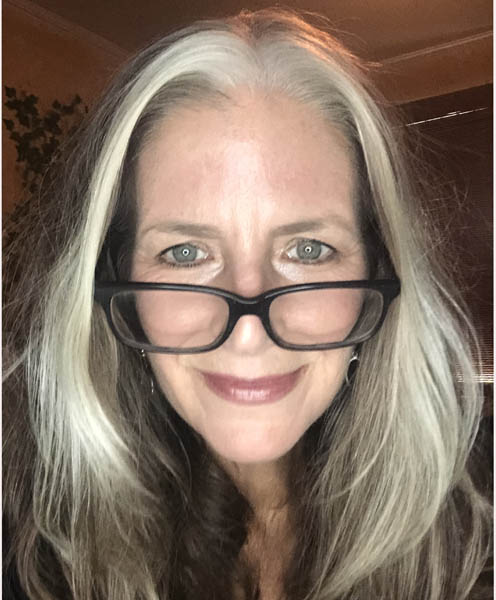What do Mumbai, India and Savannah, Georgia have in common?
Both are settings of exceptional new novels being presented at this year’s Pat Conroy Literary Festival. I’ll be in conversation with Indian-American writer Thrity Umrigar about her latest novel Honor, and my fellow local columnist Scott Graber will interview Savannah native George Dawes Green about his, The Kingdoms of Savannah.
I have a feeling Scott and I will both be asking a lot of questions about “setting.”

Novelist George Dawes Green
Though, to call these distinctive cities mere “settings” may be to underplay their significance to their respective books. Each is more like an integral character. In a recent review for the Charleston Post & Courier, the Conroy Center’s Jonathan Haupt wrote of Green’s The Kingdoms of Savannah that the city “emerges as the novel’s central protagonist.”
I think I might have gone with “antagonist.”
Green, an 8th generation Savannahian, has painted an impressionistic portrait of his birth city that, while fascinating, is not exactly flattering.
And Umrigar, who left Mumbai for America 40 years ago, when it was still Bombay, has cast an equally jaded spotlight on her hometown in her haunting novel, Honor.
And that’s by no means where the unlikely similarities between these books end. Though wildly different writers, whose styles – and stories – bear little resemblance, it seems to me that Green and Umrigar are concerned with the same essential themes. And they’re big ones.
In Honor, an Indian-American journalist living happily in New

Novelist Thrity Umrigar
York returns to Mumbai against her better judgment, to help a friend, and ends up immersed in all the worst parts of her birth country . . . as the reasons her family fled many years earlier are slowly revealed to the reader.
In The Kingdoms of Savannah, a scion of Savannah society who has rejected that birthright in no uncertain terms – he is literally a vagabond – is dragged back into its web when a friend is murdered, coming face to face with the city’s darkest secrets, both past and present.
In both these vivid novels, society bristles with traps, landmines, and thresholds that can’t be crossed. They’re not the same traps, landmines and thresholds, but they’re not entirely different, either.
Umrigar’s Mumbai, with its caste system, intransigent traditions and rigid gender roles – not to mention its outlying villages, with their superstitions, religious hatreds, and honor killings – might seem worlds away from contemporary Savannah.
And yet, Green conjures onto the page a Savannah that, beneath its sophisticated veneer – and despite its liberal pretensions – is rotten with its own traditions, rigidity, prejudices and violence.
In both novels, we see insular, class-based societies that close ranks to outsiders and offer little opportunity for upward mobility. And those outsiders who do manage to climb to the higher echelons of society – particularly in Savannah, where it’s a real possibility – don’t necessarily like what they find there.
I’m thinking, in particular, of Green’s indelible creation, Morgana Musgrove, a Savannah matriarch who’s propelled herself into the upper crust by the sheer force of her smarts, beauty and will. Morgana is a wonderful-terrible character I’ll not soon forget. As a lifelong Southerner of a certain age, I feel like I’ve known her all my life.
Umrigar’s Honor features some equally compelling characters – especially women – who are mired in their social status, both high and low, but transcendent of spirit. In the India portrayed here, it’s not only caste but religious affiliation that separates and isolates. The tribalism is more pronounced – and violent – in the rural areas, but it simmers just beneath the surface of urban Mumbai, as well.
While reading both novels, I couldn’t help thinking about the United States of America, circa 2022. This was somehow both comforting and shudder-inducing.
Without giving any spoilers – and I don’t want to spoil these books for you, because I really want you to read them! – I’ll just say that by the end of each novel, one of its main characters has made an uneasy peace with the past, and with their city of origin. It’s a peace that feels tenuous and may not hold. These stories aren’t over yet.
While neither of these characters has forgotten – each had good reasons for rejecting their heritage – both have found a way to forgive, for now. And that way, as always, is through empathy.
I was discussing all this on the phone last week with my friend Marly Rusoff. Marly was Pat Conroy’s literary agent and is one of the driving forces behind the Conroy Center. She and her husband Mihai live here in Beaufort parttime, while maintaining a home and office in New York, where they’ve run their agency for decades. Marly is friends with both Umrigar and Green – both of whom live in NYC – and I’m sure she helped facilitate their coming to Beaufort.
“Am I totally off-base about this?” I asked Marly, after floating my theory that these two very different novels are also very similar.
“I hadn’t thought about it that way!” she exclaimed, “but you’re absolutely right!”
Whew. With Marly’s knowledgeable endorsement, I felt emboldened to write this column.
Having said that, Marly mainly wanted to talk about empathy.
“That’s the main gift of fiction, don’t you think?” she said. “The ability to see into the hearts and minds of people who seem to have nothing in common with you . . . and understand them?”
How could I disagree? But I’ll take it a step further, because it seems to me that empathy is not an end in itself. I believe empathy is where we must begin if we’re ever to heal festering estrangements and mend broken systems and – okay, I’ll just say it – avoid killing each other.
With mounting tribalism currently poisoning our own country – and our respective states and even communities – it occurs to me that we need plenty of empathy right now. Stores and stockpiles of empathy. I don’t remember a time we needed it more, and I’m pretty old.
Marly and I both hope this year’s Conroy Festival will churn out streams – nay, floods – of empathy. That it will be nothing short of an empathy factory. Let the empathy boil up and cascade down and flow like a river.
When empathy flows like a river, justice and peace are never far behind.
The 7th Annual Pat Conroy Literary Festival is October 28 – 30. For more information and a complete schedule of events, visit www.patconroyliteraryfestival.org








